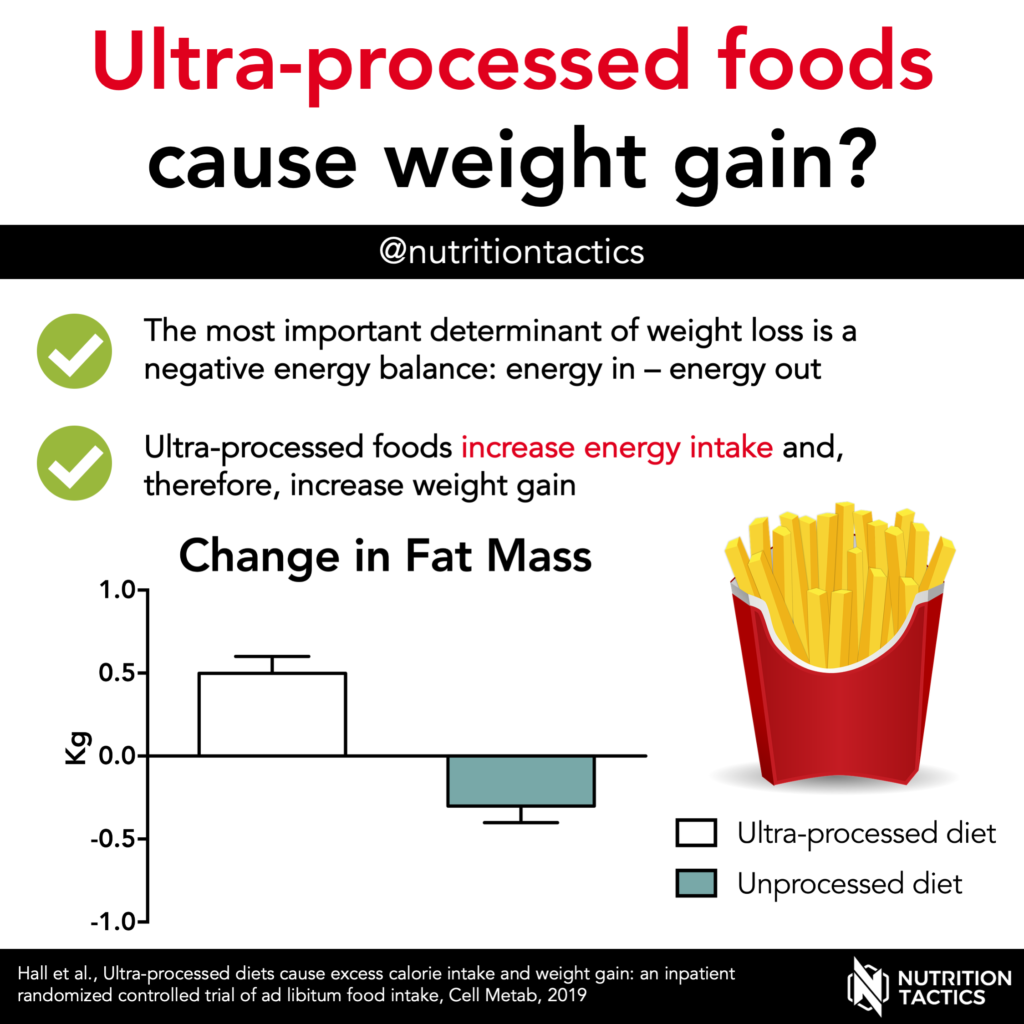Do ultra-processed foods cause weight gain?
A change in bodyweight is the result of a positive energy balance: energy intake (food) minus energy expenditure (e.g. physical activity).
There are many popular diets that claim to improve fat loss, but a common factor among most of them is to avoid processed foods and to eat more unprocessed foods (e.g. whole wheat bread is preferred over white bread).
This study investigated the effect of a diet high in ultra-processed foods versus a diet high in unprocessed foods. Participants were in the lab for a month (2 weeks on the ultra-processed diet and 2 weeks on the unprocessed diet). All meals were provided to them. The presented meals were matched for calories, energy density, macronutrients, sugar, sodium, and fiber. Subjects were instructed to eat as much or as little as desired.
The ultra-processed diet caused subjects to eat ~500 kcal per day more compared to the unprocessed diet. These extra calories came from extra carbohydrates and fat. Protein intake was the same for both diets.
The higher energy intake of the ultra-processed diet caused subjects to gain 0.5 kg fat mass during the diet, while the unprocessed diet decreased fat mass by 0.3 kg.
Therefore, a diet low in processed foods is probably a good idea if your goal is fat loss.
Go to the next infographic in the dieting series:
Gain muscle and lose fat with a high protein diet?


Was that the hypothesis of the study? Interesting. Probabaly, you have shown which is common sense that you eat less on food which is high in fiber and more satiating.
I don’t think a remarkable finding as the ultra processed food group consumed more calories. I think it would have been more interesting if calories were matched in both groups. I don’t believe there would have been a difference between the groups in weight gain if calories were matched. Of course the aspect of a healthy diet, consuming the sufficient amount of micronutrients fibre etc is not taking into consideration answering that hypothesis.
Hi Anna,
Doing this study with a calorie-matched comparison would also be interesting. However, this study shows that people tend to overeat on processed foods. This study has more real-life application (e.g. people have ad libitum intake).